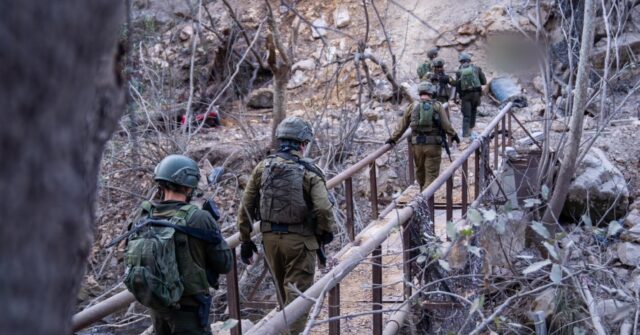On a significant day for Israel’s military operations, soldiers from the Israel Defense Forces (IDF) reached the Litani River in southern Lebanon for the first time since the year 2000. This development occurred ahead of a ceasefire that was anticipated to be approved by Israel’s security cabinet later that same evening. The last time the IDF had a presence at the Litani was during its unilaterally declared withdrawal from the South Lebanese security zone, a measure taken in response to escalating terrorist attacks originating from the area. The security zone had been established as a buffer against aggressions from militant groups, predominantly Hezbollah, but after enduring continuous ambushes and attacks, Israel opted to retreat to bolster its national security amidst growing threats.
The strategic significance of the Litani River is underscored by United Nations Security Council Resolution 1701, which was adopted to bring an end to the Second Lebanon War in 2006. Under this resolution, Hezbollah was mandated to pull back north of the river, a directive that the group has notably ignored, leading to ongoing tensions. The IDF’s recent advancement is viewed as a decisive military accomplishment, particularly as the terms for the prospective ceasefire will hinge upon Hezbollah’s withdrawal from southern Lebanon. The movement of IDF troops into this area serves as an emblematic assertion of Israel’s military capability and commitment to its security objectives against terrorism.
As part of the military operations near the Litani, the IDF also conducted sophisticated intelligence-based raids aimed at dismantling terrorist infrastructure in the region. Notable units involved in these operations included the 3rd Brigade Combat Team, the reservist troops from the 769th Brigade, the Golani Reconnaissance Battalion, and the elite Shaldag Unit. The IDF engaged in extensive ground engagements, which resulted in confrontations with terrorists, the destruction of numerous weapon launchers, and the confiscation of thousands of rockets and missiles. Additionally, various weapons storage facilities concealed in the complex topography of the mountains were located and neutralized, further indicating the IDF’s overt strategy to cripple Hezbollah’s operational capabilities.
The broader implications of Israel’s military actions extend not only to immediate security concerns but also to geopolitical ramifications. By reaching the Litani, Israel aims to reinforce its position both militarily and diplomatically, enabling it to negotiate from a position of strength as ceasefire discussions take place. Achieving this geographical milestone underscores Israel’s operational goals and suggests a significant tactical shift in its approach to combating threats from Hezbollah and other militant factions. The ceasefire discussions anticipated are likely to be influenced by these developments, as Israel seeks to solidify its security interests in the region while addressing the persistent challenge posed by Hezbollah’s military presence.
As the conflict continues to unfold, the dynamic situation necessitates a careful analysis of military engagement and diplomatic dialogue. The potential effectiveness of the ceasefire will largely depend on compliance from all involved parties, specifically the adherence of Hezbollah to UN resolutions. The IDF’s recent achievements on the ground may be pivotal in setting the narrative for Israel’s future operations and the role of international bodies like the UN in mediating regional stability. It remains to be seen whether this military success will contribute to a sustainable peace or provoke further confrontations.
In conclusion, the recent movements of the IDF toward the Litani River mark a critical juncture in Israel’s ongoing military operations against Hezbollah and underscore the complexities of Middle Eastern geopolitics. The simultaneous push for a ceasefire while making notable strides in military engagement illustrates the multifaceted challenges faced by Israel in securing its borders and addressing the threat from organized militant groups. As the situation continues to evolve, Israel’s approach will likely balance military assertiveness with strategic diplomacy, navigating the intricate landscape of regional relations and security imperatives.

